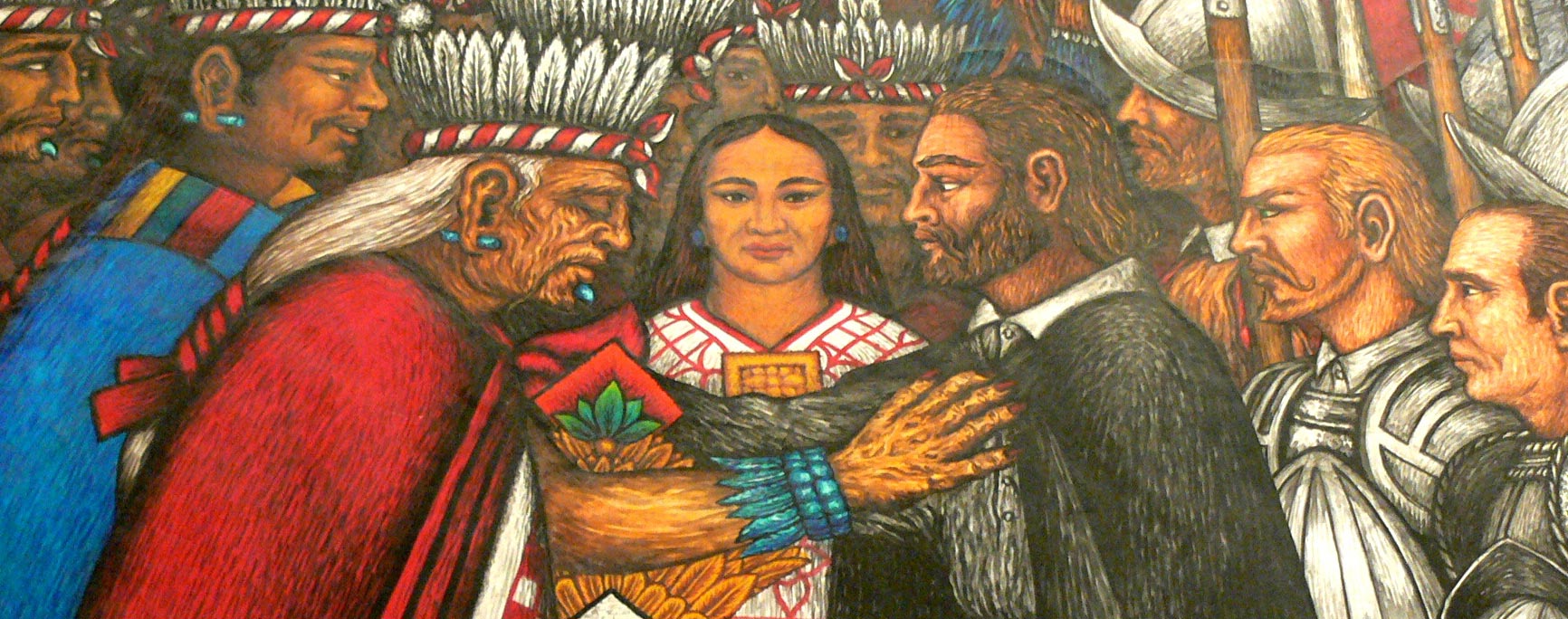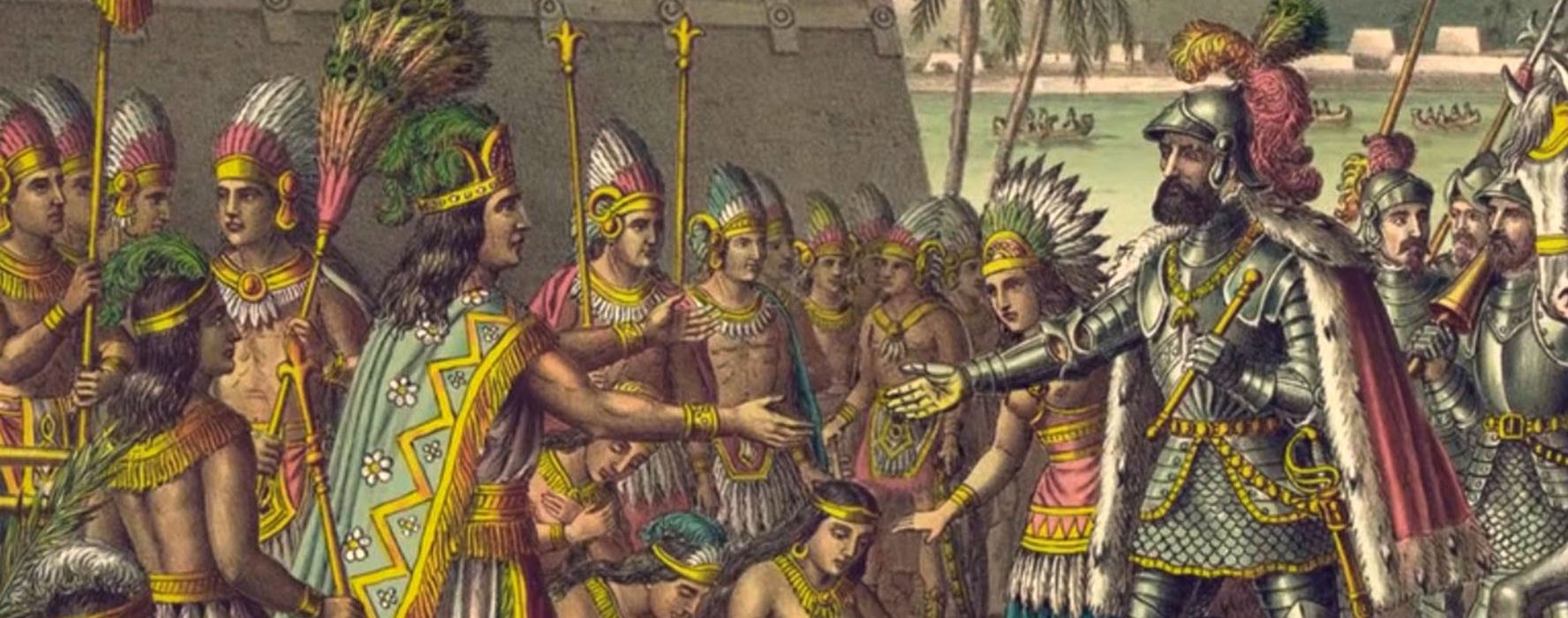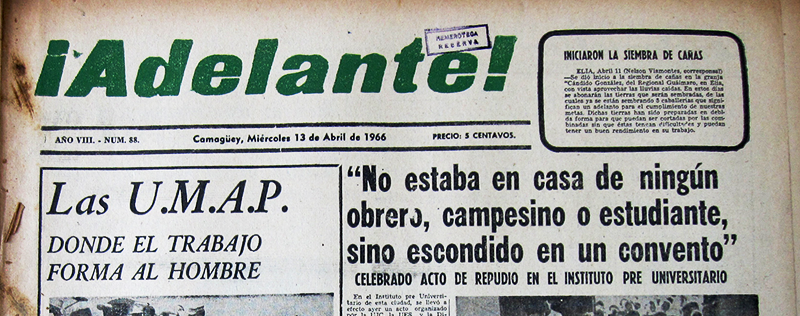Source:NIUS
INTERVIEW WITH MARCELO GULLO
-
The Argentine professor publishes “Madre patria” (Motherland), a polemic book that tries to demonstrate that the Spanish black legend was the most brilliant work of British political marketing.
-
This Hispanophobia, which makes Spain lose its “national self”, has consequences in Catalan separatism and even in the deterioration of salaries.
-
He believes that only massive Hispanic-American immigration will prevent Spain from becoming “China’s theme park”.
Argentinian Marcelo Gullo Omodeo has no Spanish grandparents, they were all Italian, but he was raised by a tata from Salamanca, “a grandmother of affection”, who taught him to read and write by reading Cervantes. Now he realises that she was his real educator and she is at the root of his attempt to undo the Spanish black legend.
Marcelo Gullo’s other CV is more prosaic: PhD in Political Science in Buenos Aires, MA in International Relations in Geneva, graduate in International Studies in Madrid, and researcher at the Institute of Strategic Studies in Rio de Janeiro.
All his experience and Spanish passion are now poured into Madre Patria (Espasa), in which Marco Gullo sounds the alarm: Spain and Hispanic America are losing their way because they have forgotten their true history, disfigured by the political propaganda that the Dutch, English, Americans and Soviets have been successfully spreading for centuries.
The deception is such that Alfonso Guerra himself warns in his prologue of the presence of this virus in many public institutions. And it is not only a question of the past but also of the future: Spain and the countries of Hispanic America run the risk of being dismembered by this distortion of their history.
Hispanophobia leads to a deep inferiority complex in Spain that weakens the nation in the face of the Catalan affront, but also in the face of Europe, and this has unforeseen consequences.
Question: You even go so far as to claim that there is a link between the black legend and the deterioration of wages in Spain.
Answer: There is such a link, although most people do not understand it. The deterioration of wages has to do with the way Spain is inserted and looks at Europe. Spain came to the European Economic Community believing that they were good old boys playing in a social club. In reality, it was a poker game. It entered when the process was egalitarian and Germany had not made the decision to hegemonise Europe according to its needs. Spain, with the prejudice of the black legend, considered itself less than the other Europeans and accepted whatever was offered to it in that club, believing that they were good boys. Now the common currency is made in the image of what Germany needs. That is why there is a deterioration in wages and a loss of competitiveness. If Spain had not entered with that inferiority complex derived from the black legend, it would have been in a better position to negotiate its accession.
Spain negotiated its accession to Europe badly because of the inferiority complex derived from the black legend
Question: But the manna of Europe came to Spain. In fact, it is still coming.
Answer: Yes, but especially at the beginning, when Germany was paying for the guilt of the World War, something that changed with reunification. Then there began to be a metropolis and colonies within Europe.
Q: What is the relationship between the Spanish black legend and Catalan separatism?
A: When Spain believes the black legend written by its enemies, it condemns itself. Then separatism is inevitable: Spain was a monster that devoured peoples and raped women, it was said. This was exploited by a group of madmen in Catalonia who began to identify the false conquest of America with a supposed conquest of Catalonia. When the Spanish accepted their black legend, they were creating the seeds of the separatist monster in Catalonia. The reality that these Catalans deny today is that Catalonia developed industrially thanks to the sacrifice of all Spaniards, who were captives of its textile industry.
By accepting the black legend, the seeds of Catalan separatism were sown
Q: Every country has its own black legend. The difference with ours is that our politicians and intellectuals did not fight it, you says. They even took “morbid pleasure” in wallowing in it.
A: That is what is most striking. No country believes the stories created by its enemies. Would any Frenchman believe the history of France written by Germany in 1910? Impossible, because Germany was an enemy of France. How can it be that Spaniards and Hispanic Americans accept the history written by our enemies? The Spanish black legend is the first fake news in history, the most fantastic work of British political marketing. Then the United States and the Soviet Union took the baton. Everything ends as they had intended: collapsing and balkanising Spain and Spanish America.
How can it be that Spaniards and Latin Americans accept the history written by our enemies?
Q: There is a key author in the construction of the black legend, Fray Bartolomé de las Casas. What is true about his Brevísima relación de la destrucción de las Indias?
A: Juan José Hernández Arregui, a Marxist writer from Argentina – that is, someone who was not exactly right-wing – says that it was not a book, but a libel. The enemies of Spain pounced on Bartolomé de las Casas’s work like flies on honey to use it as political propaganda. The curious thing is that Spain – which they said was backward and murderous – never punished him and never forbade him to speak. In fact, it rewarded him because he was offered the bishopric of Cuzco, the most important at the time. Spain accepted all kinds of criticism in its midst, even that of Bartolomé de las Casas, which was totally false. There was unprecedented freedom of thought.
In reality there was no conquest, but the liberation of America
Q: The conquest of America was something exceptional, you say.
A: It was a unique case in the history of mankind. First Spain questioned to itself whether the conquest was right or wrong. That had never happened before. In reality, there was no conquest, but liberation. It was impossible to defeat with 300 men an army of a million as the Aztecs had. Aztec imperialism was the most atrocious imperialism of humanity: they sacrificed thousands and thousands of people of the dominated tribes every day, demanded tribute in blood, ate the children of the defeated in the pyramids. If Hernán Cortés succeeded, it was because he told these subjugated peoples that this was going to end: “with us, this will never happen”. The conquest was in reality the liberation of 80 per cent of Mexicans. If there had been a popular vote between Cortés and Moctezuma, the former would have won by a landslide. Spain brought to America a more just project. Thousands of Indians fought with Cortés against the Aztecs.
If there had been a popular vote between Cortés and Moctezuma, Cortés would have won by a landslide
Q: The occupation was also unique, you say.
A: It was the most profound mestizaje (miscegenation) in history. Spain brought its best teachers to Mexico and Peru. Cervantes himself signed up to come to Mexico. Spanish doctors founded hundreds of hospitals that ended up being better than those in Madrid, Barcelona or Seville. They combined traditional medicine with European medicine. The rich wanted to travel to Lima to be cured. Universities were founded. When San Marcos was founded – 80 years before Harvard – there were still no secondary schools in the United States. Spain never considered America a booty. If it had thought so, it would have done what other conquistadors did: found cities on the coast to rob and flee quickly. Spain created cities in the interior of the continent, each with its own industry. There is no metropolis-colony relationship because there was no dependence.
Q: But that’s not the narrative that triumphs in these Latin American universities, but rather that of “indigenist fundamentalism”.
A: Yes, it is the triumphant narrative and to go against that narrative is to be expelled from the academic world. It is the hegemonic narrative. To say what I say now is politically incorrect. To tell the truth of history, which is fundamental to save the future, means being expelled from the academic world. Many know this but keep quiet so as not to be expelled. It is the dictatorship of the black legend, of false history.
The risk is territorial division: the same thing that is happening in Spain with Catalonia is happening in America with the indigenist fundamentalism
Q: Because of the black legend, Spain and Hispanic America run the risk of losing “their national being”, you say.
A: History’ purpose is to explain the present and build the future. False history leads to bad politics. If we lose our memory we don’t know where we have to go. If someone tells you that you are something you are not, it leads you to a destiny that is not yours. In our case, it is a disaster: territorial fragmentation. Who wants to belong to a homeland where all the history is atrocities, rapes, deaths, robberies? No one does. Children are taught that and they are also told that the language they speak is the language of monsters. The same thing that happened in Spain with Catalonia is happening in Hispanic America with the Mapuche, Aymara and Quechua fundamentalisms. They are going to fragment us into hundreds of different republics and we are going to be weaker than before.
Only Spanish-American immigration can save Spain from becoming a Chinese theme park
Q: You propose solutions “so that Spain does not become a Chinese theme park”.
A: Politicians do not understand demographics. Spain has a funerary population pyramid. That can only be solved with immigration, but it only works if the immigrant is willing to accept the worldview of the country of arrival. The only ones who have the same way of understanding the world as Spaniards are their Hispanic American brothers. Only Hispanic American immigration can save Spain. To do so, the black legend must be banished. Otherwise, the immigrant will arrive with hatred, full of prejudices.
Q: Spain’s relationship with Hispanic America must also change.
A: When Spain’s entry into the European Economic Community was being negotiated, many Spaniards said that they had nothing to do with Hispanic America, thinking they were blond Teutons. It was an absolute absurdity. There was a feeling of inferiority towards Germans and of superiority towards Latin Americans. That tends to happen in general with people with a feeling of inferiority.
Spain was the best of Europe in the 16th century, but this is buried by British propaganda
Q: Ortega and Madariaga said that Europe was the solution.
A: That was a serious historical error, since the real Europe was made by Italy and Spain. Spain was going to give the best of Europe for 100 years, all the literature, art, technology, medicine. It was the reference point for European thought throughout the 16th century. All this contribution was buried by foreign political propaganda. Spain created international law with Francisco de Vitoria, Mariana, Suarez, the Spanish theological school. It also initiated economic thought long before Adam Smith. Then came the black legend, obscurantism, and the curious thing happened: the Spanish believed the false history of Spain told by the English.
Q: The Creole elites and politicians and intellectuals such as Sarmiento and Borges also believed it.
A: England looked at Hispanic America with the cat looks at the canary: “I want to eat you, but you are Spanish. What I have to do is make a false history of Spain. Spanish America will break its own ties with Spain and then I’ll eat the canary and have a captive market for myself”. The Creole elites already had a relationship with England through smuggling, but then the black legend did the rest.
Mexico is very “brave” in reviewing its history with Spain, but it does not do the same with the United States
Q: In the specific case of Mexico, there is a lot of talk about Spanish grievances and little about those of the United States.
A: It has the Stockholm syndrome: the captive ends up admiring his kidnapper. Mexico is very brave towards Spain, but no Mexican president has ever said to his US counterpart: you stole Texas, California, Arizona, Arkansas, New Mexico and half of Colorado from me. Sixty per cent of Mexico’s territory was forcibly ceded in the Treaty of Guadalupe Hidalgo in 1848 when US forces were about to take Mexico City. A year after the Treaty, by chance, the California gold mines were discovered, making the US the world’s leading producer of gold. And then the same thing happened with Texas oil. The United States stole the richest territories in America from Mexico. But when they want to explain the causes of Mexican underdevelopment, they blame Spain.
Most of the money stayed in America to build hospitals, schools and infrastructure
Q: Did Spain deplete the natural resources of the Americas? That was one of the main arguments in a book that triumphed years ago, The Open Veins of Latin America, by Eduardo Galeano.
A: In economics, you have to look at the numbers, words are superfluous. If you look at the number of schools, infrastructures and hospitals that were built – all of which were free of charge – you can see that most of the money stayed in Latin American territory. Spain took only 5 per cent in taxes. Galeano himself confesses in his old age that he knew little about economics and politics. But Galeano’s book became a best seller because the Cuban revolution and the Soviets used it as the basis for their political propaganda. It is the same thing that England did with the books of Bartolomé de las Casas. Galeano later said that the book was in fact a little book and that he would never write it again, or even read it.
Share this article
On This Day
No Events
History of Spain
26 August 2020
27 January 2021
Communism: Now and Then
23 December 2022
28 July 2021






